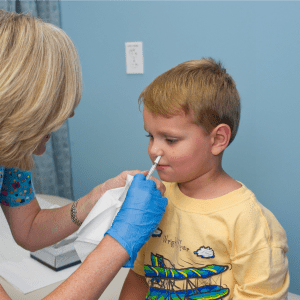GPs warned to be careful when giving flu vaccine to Muslim patients

GPs will be advised to take care when immunising Muslim patients with a pork-derived influenza vaccine.
NHS England has issued information to CCG clinical leads, to be disseminated to GPs, that some groups within the British Muslim community might consider the Fluenz vaccine forbidden.
The Fluenz vaccine is being offered to two to four-year-olds to protect against severe complications of flu.
In its recent bulletin to CCGs, NHS England said: ‘There are a range of resources on the topic of porcine gelatine in influenza vaccine available on the Public Health England website, including Q&As for health professionals. CCG clinical leads should cascade this information to colleagues as appropriate.
‘However, we also acknowledge that some groups within the British Muslim community may consider the porcine product to be forbidden. In this circumstance, the individual would be unable to accept many pharmaceutical products unless there was no suitable alternative and/or the product was considered life-saving.’
The Department of Health and Public Health England have stated that there is no suitable alternative to Fluenz.
Dr Mary Ramsay, head of immunisation at Public Health England, said: ‘We strongly recommend that anyone whose child is offered immunisation accepts this opportunity to give their child the best protection possible against the flu virus.’
Jewish groups have said that the vaccine is acceptable.
Rabbi Abraham Adler from the Kashrus and Medicines Information Service said: ‘According to Jewish laws, there is no problem with porcine or other animal derived ingredients in non-oral products. This includes vaccines, including those administered via the nose, injections, suppositories, creams and ointments.’
Visit Pulse Reference for details on 140 symptoms, including easily searchable symptoms and categories, offering you a free platform to check symptoms and receive potential diagnoses during consultations.









